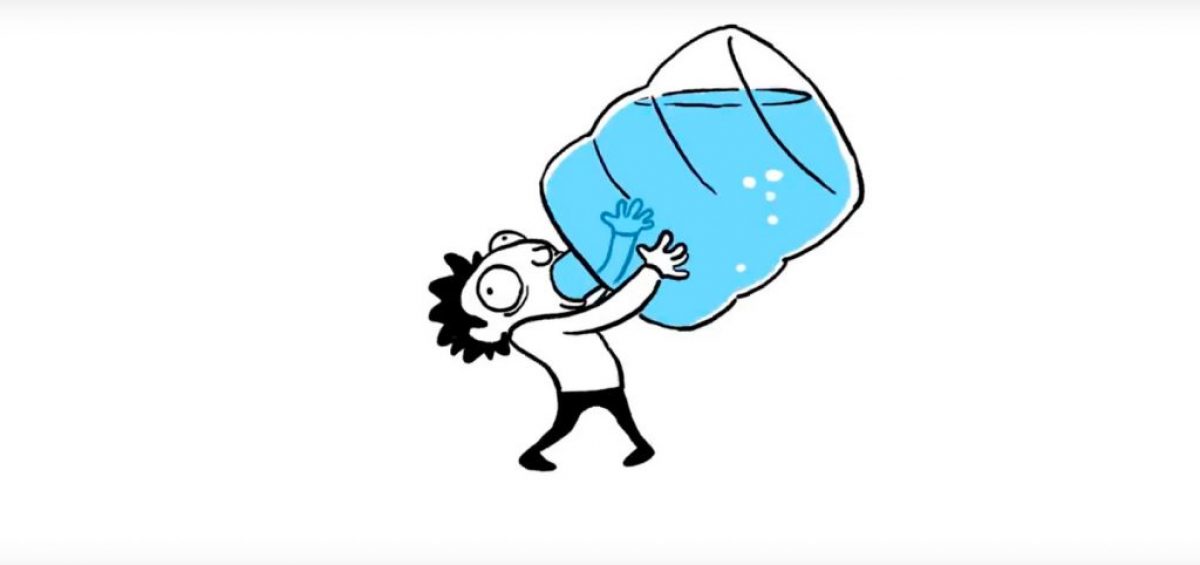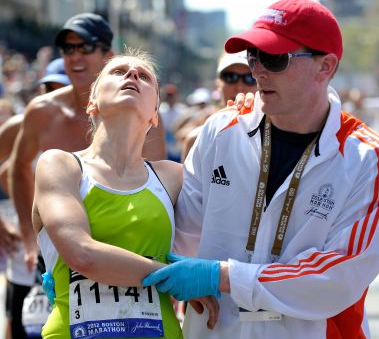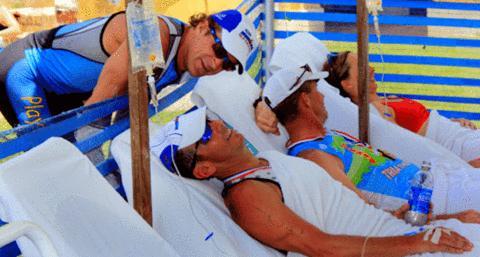A Guide to Understand Hyponatremia or “Water Intoxication”
Do you feel exhausted, irritability, headache, nausea, and low energy? Watch out! You could have hyponatremia, which is also known as water intoxication.
Low sodium level means that the amount of sodium in our blood is lower than usual, is also known as hyponatremia.
Sodium is in every corporal fluid and is very important to maintain arterial pressure controlled. Besides, it’s necessary to keep nerves, muscles, and tissues working perfectly.
But, what does It Really Mean to have Low Sodium Levels?
Sodium is a vital electrolyte that aids preserve the balance of water in and around your cells. It’s key for suitable muscle and nerve role. It also helps uphold stable blood pressure stages.
Moreover, deficient sodium in your blood is well-known as hyponatremia, as well. It happens when water and sodium are by way of balance. In other words, there’s either excessively water or too little sodium in your blood.
Usually, your sodium level should be concerning 135 to 145 milliequivalents per liter (mEq/L). Hyponatremia takes place when your sodium level goes below 135 mEq/L.
What are The Causes?
Hyponatremia is sodium misbalance; it can be for three principal reasons:
- When corporal water levels increase, but sodium content remains the same.
- When both water and sodium levels increase, but water content is still higher.
- When the body loses water as sodium, but this last one is higher.

It can be due to:
- Burns at some body parts
- Diuretic ingest like water pills
- Dehydration
- Diarrhea
- Drinking too much water while exercising (it’s very unusual)
- Cardiac insufficiency
- Some medicaments like antidepressants and analgesics.
- Renal diseases
- Adrenal gland complaints, like Addison’s illness, which affects your adrenal glands’ capability to control the stability of sodium, water, and potassium in your organism.
- Liver disease
- Swept
- Hypothyroidism
- Ecstasy use
- Heart problems
- Kidney disease or failure
- Severe vomit
What are the Symptoms?
Symptoms of low blood sodium can differ from person to person. If your sodium ranks fall slowly, you may not feel any symptoms. On the contrary, if they drop very fast, your symptoms may be more serious.
Dropping sodium fast is a medical emergency. It can produce loss of perception, coma, and seizures.
Ordinary symptoms of low blood sodium consist of:
- Confusion
- Weakness
- Nausea
- Fatigue or low energy
- Vomiting
- Muscle cramps or spasms
- A headache
- Irritability
There is not much that you can do outside of an instant trip to the hospital for hyponatremia. So, discerning between dehydration and hyponatremia is the most essential part of hyponatremia chief aids. Besides, the warning signs are alike enough that a good valuation must include interrogating the patient and observers to conclude if the patient was drinking water or not.
The Difference between Heat Exhaustion and Hyponatremia
 Athletes in marathons and other staying power events through the nation have turned into confusion and even distorted throughout the race because of hyponatremia. On the other hand, many more participants in these very events have also turn out to be confused and collapsed from heat exhaustion, dehydration, or heat stroke.
Athletes in marathons and other staying power events through the nation have turned into confusion and even distorted throughout the race because of hyponatremia. On the other hand, many more participants in these very events have also turn out to be confused and collapsed from heat exhaustion, dehydration, or heat stroke.
It is frequently hard to primarily tell the difference between heat exhaustion and hyponatremia founded on the warning signs.
The requirement to keep on hydrated throughout periods of effort, principally in hot weathers, is well-known, but it also makes it hard to identify hyponatremia symptoms. Grave dehydration and heat exhaustion look very alike to hyponatremia and, like hyponatremia, are more common in hot climate during exercise.
How Can You Treat Hyponatremia?
 The treatments involve water intake variation and water intake consumed.
The treatments involve water intake variation and water intake consumed.
This consists of changing your water intake. For instance, if you used to drink 3 L of water before, now you should try to decrease a little the intake amount.
Drink coconut water, it has lots of electrolytes and helps combat dehydration; it has sodium, magnesium, and potassium.
Banana also has high potassium content which aids to increase your energy.
You should increase your veggies and fruits consumption because sodium is in every food we eat. For instance, a cup of natural juice has 500 mg of sodium. Spinach is a good sodium source option.
Try to obtain sodium from red and white meat. Also, you can prepare soups with these and raise your blood sodium levels naturally and healthy.
How do you prevent it?
 Maintaining your water and electrolyte stages instability can help prevent low blood sodium.
Maintaining your water and electrolyte stages instability can help prevent low blood sodium.
If you’re a sportsperson, it’s key to drink the correct amount of water throughout the exercise. Moreover, you should also care about drinking a rehydration drink, for instance, Powerade or Gatorade. As these drinks have electrolytes, counting sodium; they aid refill sodium lost through sweating. Also, these drinks are useful if you miss a lot of fluids over diarrhea or vomiting.
Throughout the usual day, women should purpose to drink 2.2 liters of liquids. Moreover, men should goal for 3 liters. Consequently, when you’re sufficiently hydrated, your urine will be pale yellow or clear and you won’t feel thirsty.
It’s essential to raise your fluid consumption if:
- You have a fever
- You’re at height altitude
- You’re vomiting
- You’re expecting or breastfeeding
- The weather is hot
- You have diarrhea
You shouldn’t drink over 1 liter of water per hour. Remember that it’s probably to drink excessive water too quickly.
You Must Consider…
- Individuals with loss of consciousness, severe weakness, confusion, or slurred speech need medical attention straightaway.
- Heat overtiredness and dehydration can look badly like hyponatremia and are much more frequent. Heat stroke has a different set of indications and is a severe emergency.
- Individuals of hyponatremia require salt so that even out the body’s sodium stages. However, in minor cases – regularly, just when there is nausea – before dizziness, cramps, or confusion happens, the person may feel well instantly after salty food consumption.
- Avoid aspirin, ibuprofen, or Naprosyn when worried about hyponatremia. This is because; these painkillers may make symptoms graver.




